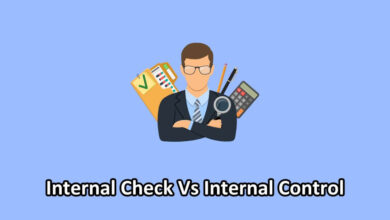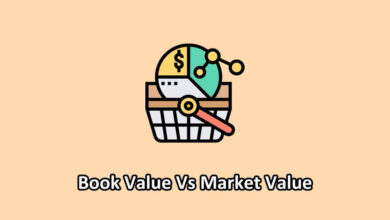Angel investors are wealthy high-net-worth individuals who invest in startups by donating their own money. Venture capitalists are entrepreneurs with experience and expertise in entrepreneurship, finance, law, marketing, or other areas that help startups grow. In this article, we will have a look at the complete difference between angel investor and venture capitalist.
What is Angel Investor?
Angel Investors refer to the high net worth individuals, often known as informal investors or business angels, who contribute personal capital to potential new enterprises in order to make a profit.
Angel investing is often riskier than investing in established companies because there is usually no track record of success to examine and the investor must rely heavily on the entrepreneur’s ability to execute the business plan. However, the potential rewards are also greater since early-stage investments have the potential to generate higher returns than investments made in more established companies.
There are a number of online platforms that connect angel investors with entrepreneurs looking for funding, such as AngelList and SeedInvest.
In a nutshell, an angel investor is a person who contributes money to the startup of a firm, typically in exchange for ownership equity or convertible debt. A small group of angel investors is sometimes referred to as a “round.”
What is Venture Capitalist?
Venture capitalists are typically institutional investors, such as investment banks or large companies, that invest in high-growth businesses. Venture capitalists typically invest in companies that are in their early stages of development and have a high potential for growth. They might also put money into more established businesses that want to grow or break into new areas.
Venture capitalists support business networking, product development, sales experience, and advertising techniques in addition to providing financial support to enterprises. Income notes, equity financing, conditional loans, and participating debentures are examples of venture capital products.
When do Angel Investor and Venture Capitalist Invest?
There are a few key things to keep in mind when thinking about when an angel investor or venture capitalist might invest in your business.
- The first is that angels and VCs(Venture capitalists) are looking for businesses with high growth potential. They want to see that your company has a clear path to becoming a large and successful business. Additionally, they will also want to see that you have a strong management team in place who can execute your growth plan.
- Another key factor that will impact when an angel or VC might invest is the stage of your business. If you are an early-stage startup, you may have a harder time attracting investment from these types of investors. This is because they often prefer to invest in companies that are further along in their development and have already achieved some level of traction. However, if you have a solid business plan and team in place, it is still possible to secure funding from angels and VCs at this stage.
- Finally, it is also important to remember that each individual investor has their own preferences and priorities when it comes to investing. So while there are some general guidelines to follow, ultimately it will be up to the individual investor to decide whether or not they want to invest in your company.
You Can Also Read: Difference Between Trading and Investing
Angel Investor and Venture Capitalist(Comparison table)

Key Differences Between Angel Investor and Venture Capitalist
There are seven key differences between angel investors and venture capitalists:
- The term “venture capital” describes money provided by outside sources that are used to finance new company endeavors. On the other hand, high-net-worth individuals are referred to as “angel investors” when they contribute their own money to potential up-and-coming enterprises in order to make money.
- Angel investors are individuals who invest their own money in a startup, whereas venture capitalists are firms that invest other people’s money.
- Compared to venture capitalists, angel investors frequently make lesser investments.
- Angel investors tend to be more hands-off than venture capitalists, giving founders more freedom to run their businesses as they see fit.
- Venture capitalists typically have more experience than angel investors and may provide valuable mentorship and advice.
- Venture capitalists often have a network of resources that startups can tap into, whereas angel investors typically do not.
- While venture capitalists typically want to see a return on their investment within a few years, investors may be more patient.
- Venture capitalists typically receive preferred shares or debt instruments that pay interest or allow them the ability to purchase shares at a later time, whereas angel investors typically receive stock or equity in the company (known as “carried interest”).
Conclusion
In conclusion, the main difference between an angel investor and a venture capitalist is the amount of money they are willing to invest. Angel investors tend to invest smaller sums of money than venture capitalists, but they also tend to be more hands-on in their approach. Venture capitalists, on the other hand, are usually more interested in companies that have the potential for high growth and will invest larger sums of money accordingly.
Angel investors are individuals who invest their own money in a startup, whereas venture capitalists are firms that invest other people’s money.




One Comment